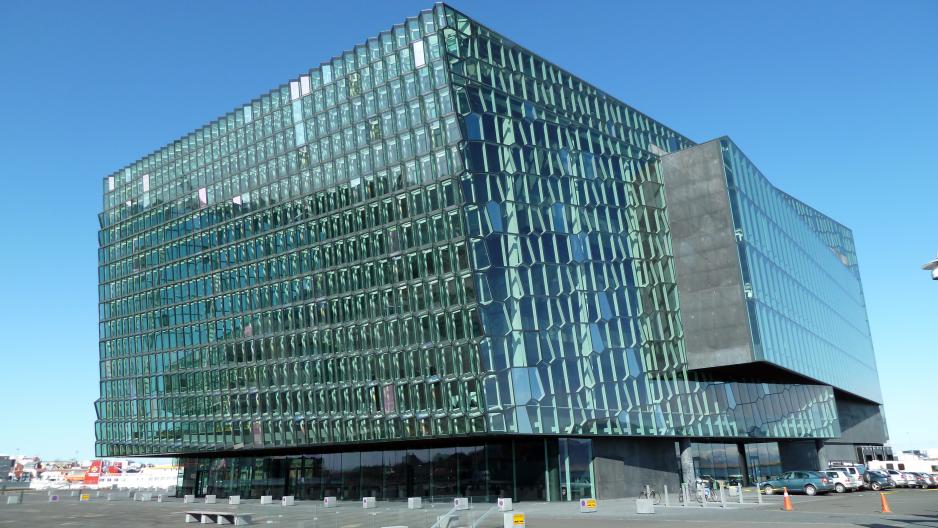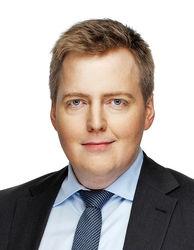Iceland Calls out for Cooperation and a Holistic Approach

Harpa Concert Hall and Conference Centre in Reykjavik, where the conference Arctic Circle 2014 is held. Photo: Wikimedia/Rob Young
Reykjavik, Iceland: - We need an holistic approach to address the development in the Arctic, says Prime Minister of Iceland, Sigmundur Davíð Gunnlaugsson. He says cooperation with the other stakeholders in the region, and the work of Arctic Council, will be tremendously important in the future.
Reykjavik, Iceland: - We need an holistic approach to address the development in the Arctic, says Prime Minister of Iceland, Sigmundur Davíð Gunnlaugsson. He says cooperation with the other stakeholders in the region, and the work of Arctic Council, will be tremendously important in the future.
Around 1400 participants from 40 countries are gathered at the conferencentre Harpa in Reykjavik, Iceland, today - as the Arctic Circle Assembly 2014 opened just a few hours ago.The Arctic Circle was founded last year, on the initiative of the President of Iceland Ólafur Ragnar Grímsson, former Prime Minister of Greenland Kuupik Kleist, and Alaska Dispatch Publisher Alice Rogoff.
After welcome remarks from the President, Icelands Prime Minister Sigmundur Davíð Gunnlaugsson spoke to the audience - including leaders from several countries in the Arctic, in Europe, and Asia – about the importance of taking climate changes in the region seriously.
More: Participants from 34 countries to gather at the Arctic Circle
Iceland in the front row
- I sometimes say that Iceland sits in the front row of witnessing climate changes and their consequences. We can therefore offer the best seats and the best place to host events on the Arctic, Gunnlaugsson says.
- Climate changes are happening now, and can have direct consequences - and a direct impact - of all of us, he reminds.
- We have seen dramatic changes ever since the industrial revolution, global warming it is not a recent phenomenon. But we have higher temperatures all over the globe, and also in the Arctic.
- The paste, driven by climate changes, but also by strategic, economical and commercial interests, has focused the attention on the Artic in the recent years. The stakes are indeed high. Numbers and figures need to be taken with cautions, of course. However, it is beyond doubt that the region has a huge untapped potential when it comes to the extraction of oil and gas. Some estimates say that at least 18 percent of the world’s undiscovered oil, and 30 percent of the gas, is in the Arctic, the Prime Minister says.
Need for food and water
Moreover; alternative transportation routes are opening up and cutting distances by thousands of nautical miles to evergrowing markets in the east.
- This will bring North America, Europe and Asia closer together geographically and commercially. The number of vessels transiting through the northern sea routes are increasing, and they will most likely continue to do so, in the long term. Also the climate changes will likely increase, and as the demographic factors change, the need for food increases globally, he reminds.
Icelands Prime Minister also says the region is tremendously important when it comes to the supply of fresh water supply. He leaves the audience with no doubt on the fact that this is something his government is well aware of, and that they constantly are working of maintaining and fostering their part of the Arctic region. One of the main focuses – both for Iceland and the other Arctic stakeholders - must be to develop "the right" principles and arctic policies, says Gunlaugsson.
Complex region – cooperation is the key
The changes occurring in the Arctic are many, the Prime Minister says, both economically, environmentally, socially and in terms of security:
- Therefore a holistic approach are called for, to address the developments in the Arctic.
Last year the government on Iceland established a committee of ministers that meets regularly to work on Icelands arctic policy. The goal, says the Prime Minister, is to cut way through the many complexities in the Arctic.
- Currently the committee is in the process of mapping out Icelands wide ranging interests in the Arctic, in a holistic manner, he says.
- The key is cooperation with other stakeholders in the region, Gunnlaugsson says, and states that both the Arctic Circle Assembly and the work of the Arctic Council is of great importance, as international forums for discussions.
- The Arctic Council now includes 10 out of the 11 largest economies, and 6 of the 50 largest oilproducers, he exemplify, before he adds that the Arctic Council sees to be developing their self confidence these days.
In addition to the plenary sessions at the Arctic Circle Assembly, there will be more than 50 breakout sessions over the next days. These are organized by universities, research institutions, environmental organizations, various companies, governments, and other parties interested in the Arctic.

Prime Minister of Iceland, Mr. Sigmundur Davíð Gunnlaugsson
